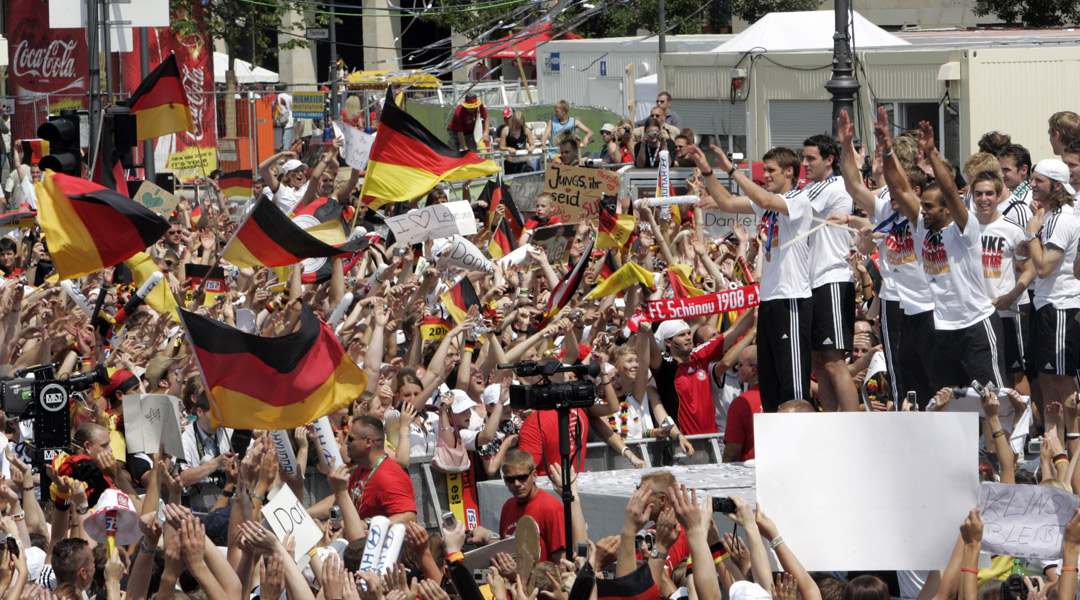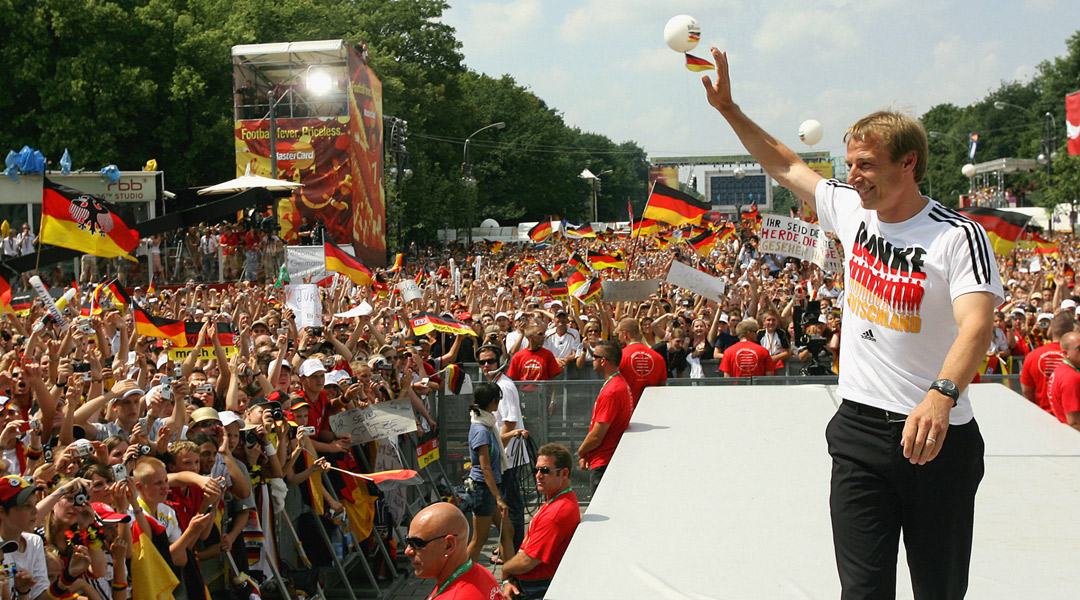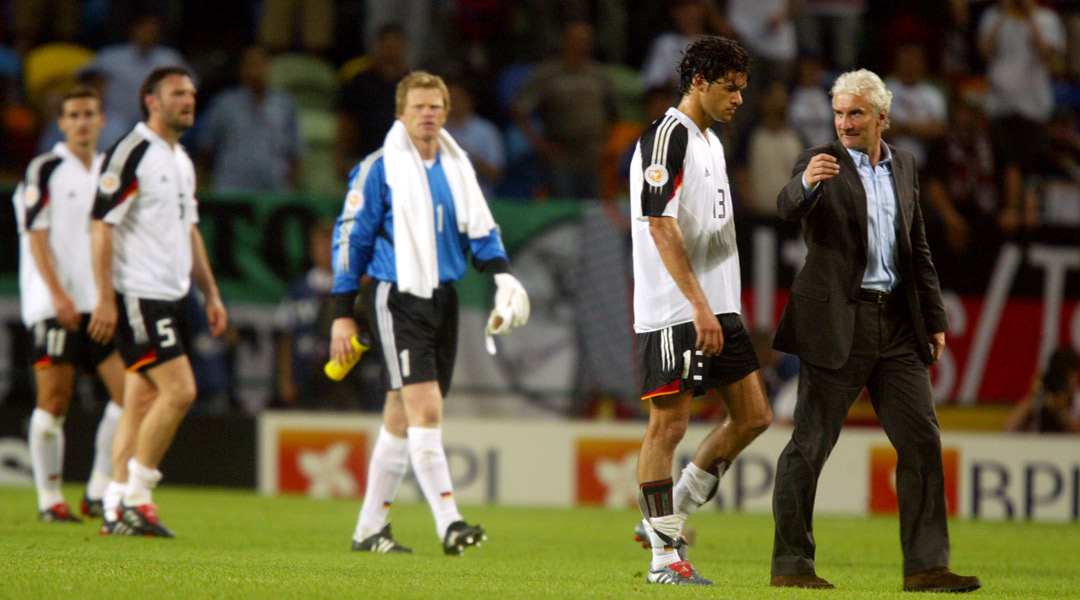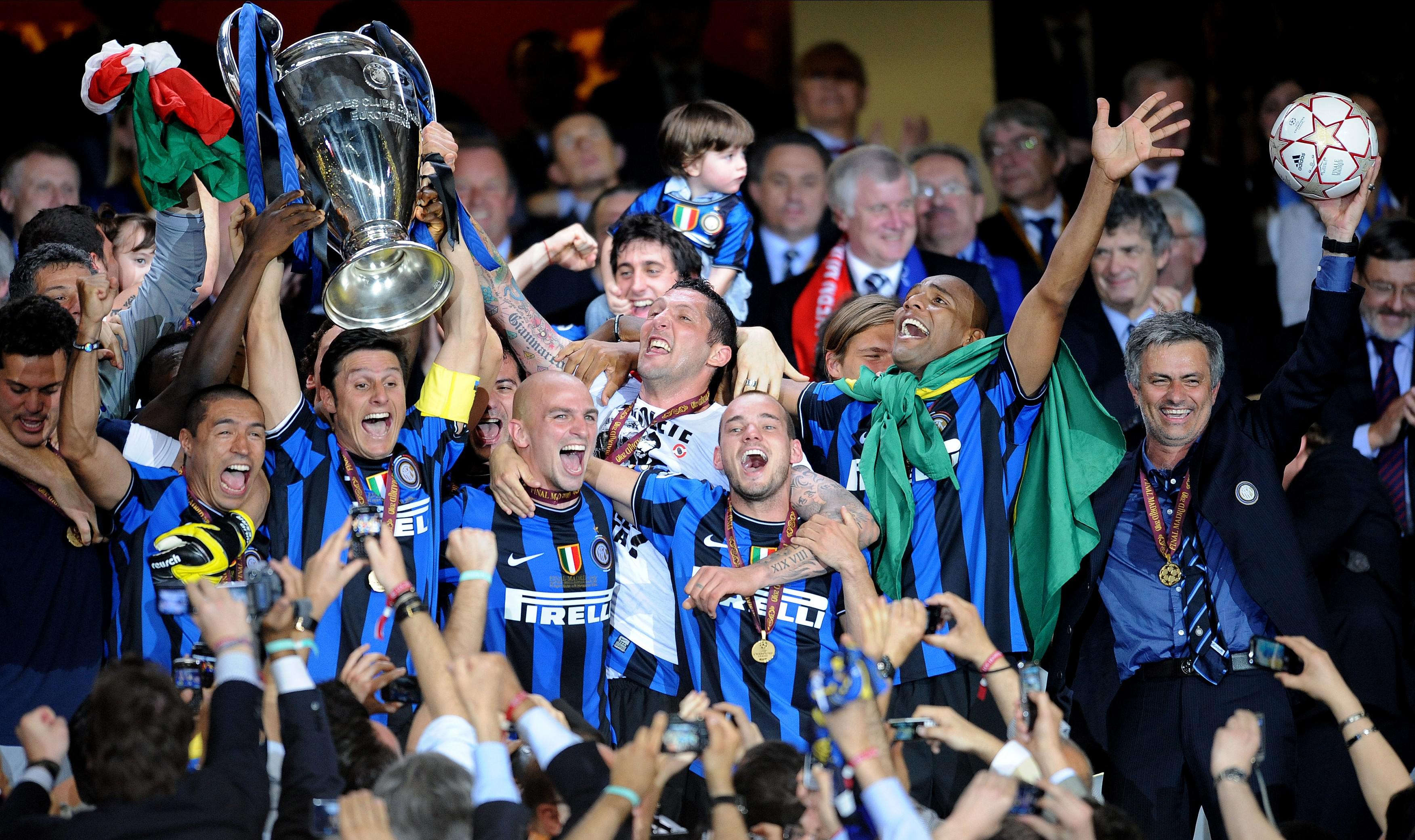World Cup 2006: When Germany learned to love its national team – and each other
Uli Hesse recalls what was once the Germans' finest hour of the 21st century – and they didn't even win anything

In mid-May 2006, less than four weeks before the World Cup began, I was touring England on a goodwill mission from the Goethe Institute. I fielded questions about Germany from student groups and talked to journalists about my country's hopes and expectations for the tournament. In Exeter and London I met members of the England Supporters Club and told them a few things about German football culture.
Basically, the gist of all these conversations was the same. The English and the Germans were much more similar than either liked to admit – but there was also one major difference between the countries. To illustrate this, I usually walked towards a window and pointed at the streets outside.
"You've got all these cars here with the small flags, the St. George's cross," I said. "You're not going to see anything like this when you come to Germany." When people asked me why, I explained that patriotism was still frowned upon in Germany because, well, you can't say we've had particularly good experiences with it.
This statement must sound ludicrous to anyone who knows that almost 500,000 people dressed in black, red and gold to watch the Euro 2012 semi-final on the so-called Fan Mile in Berlin, the street that leads to Brandenburg Gate. But it was true when I made it.

Dagmar Schediwy, a social psychologist from Berlin, published a book three years ago about what she calls "the new German football patriotism", and she has no difficulties dating the emergence of this phenomenon: "Patriotism on a mass scale was unknown in the Federal Republic until the 2006 football World Cup." It wasn't until 10 days before the start of the tournament that I spotted two or three German car flags in the streets. On the next day, there were a dozen. Another day later, a hundred.
This is just one reason why the nation remembers the 2006 tournament as a spectacular success beyond anyone's wildest imaginations. There were so many new things, it was almost as if the country was engulfed by a collective sense of wonderment that lasted for the entire duration of the World Cup.
We didn't know that we could allow ourselves to be patriotic without any ill effects. We didn't know that we could be this open and friendly to strange people from all over the world. We didn't know that these people would actually love our country. We didn't even know that we could have such sunny and hot weather for four weeks at a stretch.
Get FourFourTwo Newsletter
The best features, fun and footballing quizzes, straight to your inbox every week.
Job for no one
But above all, we didn't know that we could play football like this. It's a crucial aspect that tends to get overlooked when the story of the 2006 World Cup is told. The German team has done so well over the past eight years, both in terms of performance and results, that many people have forgotten how bleak the outlook was in the build-up to the tournament on home soil.
Rudi Völler had stepped down as national coach in the wake of an utterly disastrous Euro 2004, and the only reason why a novice coach like Jürgen Klinsmann eventually got the job was that nobody else wanted it.
Arsène Wenger declined the offer, and so did Christoph Daum, Otto Rehhagel, Jupp Heynckes, Guus Hiddink, Felix Magath and Morten Olsen. None of them fancied what was surely a suicide mission; a few may have secretly hoped to come in and mop up after Klinsmann.
Things were so bad that when Germany played the United States in late March, the German FA's president Theo Zwanziger had a full-blown emergency plan drawn up. If the USA had won this match, Klinsmann would have been fired and replaced by Matthias Sammer, a mere 79 days before the World Cup.
The importance of this backdrop to the whole story can't be overstated. As the World Cup drew nearer, the country was collectively determined to have a party not because of the national side but in spite of it. Chances were slim that the team could inspire the nation, so the order of the day was to celebrate no matter what.

It's why Philipp Lahm's opening goal in the opening game had the effect of an eruption. I saw this match on a public square in Dortmund with about 10,000 other people, and the Germans among the crowd watched the spectacular goal with a mixture of tremendous relief and stunned disbelief. Somehow, Klinsmann had managed to do what he had promised to do – build a young, exciting, attacking team that was ready when it counted.
The fact that the team did so much better than expected explains why losing the semi-final 101 seconds before the final whistle (and, as the Italians knew all too well, a penalty shootout) had astonishingly little bearing on how the tournament was viewed back then, and is still viewed now. For Germans, this World Cup was not about winning but about leaving a good impression, on and off the pitch. They certainly did that.
Even the film about the tournament was a rousing success. Sönke Wortmann's 'A Summer's Fairy Tale' attracted four million people during the first eight weeks of its theatrical release, an unheard of figure for a documentary. (The title references Heinrich Heine's epic 'Germany. A Winter's Tale'. In its original German, it's not called a tale but a fairy tale.)
Power of love
The tournament made Germans feel good about German football again. And in this one-sport country, this also means they felt good about Germany again. This is not an overstatement of the game's importance, especially when you consider that the tournament was played fewer than 16 years after the Wall came down and that West and East Germans were still at unease with each other (an effect known as the "Wall in the Minds").
So you could say that the 2006 World Cup helped define and unite a nation, not unlike the way in which the 1954 World Cup victory provided postwar West Germany, a country both guilt-ridden and in denial, with an identity. It's worth pointing out, for instance, that despite the fact that the 2006 World Cup supposedly made so-called normal patriotism perfectly respectable again in this country, the German flags still only come out in large numbers during a big football tournament.
There are no way two ways about it, the tournament was a watershed moment for Germany. Klinsmann was eventually awarded the Order of Merit of the Federal Republic, the country's highest state decoration. He was the first national manger to be honoured in this way without actually having won anything.
